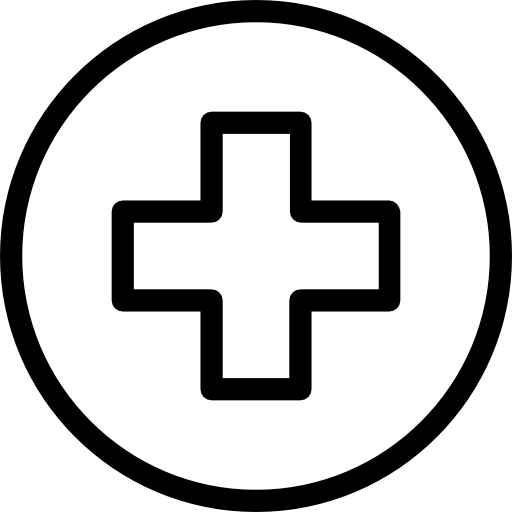Salivary Gland Diseases
Salivary gland diseases can result from infections, stone formation, cysts, or tumors in the salivary glands. These diseases typically present with symptoms such as dry mouth, pain, swelling, and reduced saliva flow. Treatment varies depending on the type of disease and may include medication, removal of stones, or surgical intervention.
Take the First Step Now
For more information, contact us
Schedule your appointment or online consultation with Prof. Dr. Mustafa Deniz Yılmaz now. Take the first step in your treatment process and let’s begin your journey to recovery together with personalized solutions.
Salivary gland diseases encompass issues such as inflammation, infection, stone formation, or tumor development in the salivary glands within the mouth. Salivary glands secrete saliva, which aids digestion and contributes to oral health. There are three main salivary glands: parotid (in front of the ear), submandibular (below the jaw), and sublingual (under the tongue). Diseases in these glands can arise for various reasons.

What are salivary gland diseases?
Salivary gland diseases include salivary gland stones (sialolithiasis), salivary gland infections (sialadenitis), salivary gland cysts, tumors (benign and malignant), and disorders involving excessive or insufficient function of the salivary glands.

What are the symptoms of salivary gland diseases?
Common symptoms include dry mouth, bad taste in the mouth, swelling in the face or neck, reduced saliva production, pain (especially during eating), a hard mass in the mouth or neck, fever, and pus in the mouth.
What is a salivary gland stone and how does it form?
A salivary gland stone forms due to the buildup of minerals from saliva in the salivary ducts. These stones can block the flow of saliva, causing pain and swelling. Stones most commonly form in the submandibular glands.
How do salivary gland infections develop?
Salivary gland infections typically arise from bacterial or viral causes. In cases where saliva flow decreases, bacteria can multiply within the salivary glands, leading to infection. The mumps virus can also affect the salivary glands.

What are salivary gland tumors?
Both benign and malignant tumors can develop in the salivary glands. The most common benign tumor is called “pleomorphic adenoma.” Malignant tumors are rare but can be aggressive in the salivary glands.
How are salivary gland diseases diagnosed?
Diagnosis is made through physical examination, medical history, and evaluation of symptoms, alongside tests such as ultrasonography, magnetic resonance imaging (MRI), computed tomography (CT), salivary gland scintigraphy, or biopsy.
How are salivary gland diseases treated?
Treatment depends on the type of disease. If the salivary gland stone is small, it may be removed through manual massage or methods that increase saliva production. If the stone is large, surgical intervention may be necessary. Infections are treated with antibiotics, while tumors are usually removed surgically. For malignant tumors, additional radiotherapy or chemotherapy may be required.
Can salivary gland diseases be prevented?
To prevent salivary gland stones, it is important to drink plenty of water, maintain oral hygiene, and regularly visit a dentist for oral health check-ups. Avoiding medications that increase the risk of dry mouth can also help.
Can salivary gland stones recur?
Yes, stones may sometimes recur. Even after they are removed, there is a risk of new stone formation in the salivary gland. This may be due to individual predisposition or the functioning of the salivary glands.
Can salivary gland tumors be cancerous?
Tumors can be either benign or malignant. Benign tumors generally grow slowly and can be treated surgically. Malignant (cancerous) tumors can grow quickly and have the potential to spread, so early diagnosis and treatment are essential.

At what ages do salivary gland diseases occur?
Salivary gland diseases can occur at any age; however, stones are more common in middle-aged individuals, while tumors tend to be seen in older adults. Viral infections are more common in children (for example, mumps).
Are salivary gland diseases serious?
Most salivary gland diseases are not serious, but in some cases (such as with malignant tumors), they can lead to severe health issues. Therefore, early diagnosis and treatment are important.
My paths crossed with Dr. Deniz because of my vocal cord polyp. My indecision before my doctor cost me 8 months. It didn't take us 8 minutes to get examined and decide on surgery. I pray for you for restoring my hoarse voice. I'm so glad Mustafa Deniz Yılmaz🙏
My nephew Ugur Karaer was suffering from empty nose syndrome. We went to every doctor in Istanbul. Finally, God brought us to Dr. Deniz. He performed the surgery successfully and saved my nephew's life. May God bless him.
I don't know how many surgeries I've had myself. But when it comes to children, everything calms down. 🙁 After seeing three doctors for my 2.5-year-old daughter's adenoid and tonsillectomy, we thankfully found Prof. Dr. Mustafa Deniz Yılmaz. His knowledge and patient approach made us believe he was by far the best doctor in this field. His assistant, secretary, the specialist who performed the hearing test... the entire team was extremely professional. Success is a team effort. That's why the whole process went smoothly, and we left satisfied. 💕 May God bless him 🙏🏻
We came from Almaty on vacation, and my son started having ear pain from the very first day. They recommended drops and medications, but nothing helped. We stumbled across a doctor online and decided to take a chance. She turned out to be wonderful, and after the first dose of medication, my son felt better. Within a week, there was no trace of the infection. Special thanks to the translator for her care, understanding, and professionalism.
I was suffering from empty nose syndrome. For those who don't know, I should say that almost all of my nasal tissue was removed. It is a very bad disease. I went to 100 ENT doctors in Istanbul and they couldn't find a solution. Finally, I found Deniz Hoca, who is an expert in this field, and he took cartilage from my rib and performed the surgery and I got better. Thank you very much for everything.
I had a tonsillectomy performed by our doctor, Mustafa Deniz Yılmaz. The surgery went smoothly, and although it's said to be more difficult for adults, I recovered very quickly. I'm so glad I chose Mustafa.
Hello, they told me that my parotid gland needed to be removed. I went to so many doctors that I finally decided on Dr. Mustafa. I am glad I chose Dr. Mustafa. You do not need to look for a doctor, you can choose my doctor with peace of mind without any worries.
I had a nose surgery 9 months ago by Mustafa Deniz Hoca. Both he and his team are always in touch with you before and after the surgery and provide detailed answers to questions. I am very pleased with my nose in terms of aesthetic appearance and health. Thank you and your entire team for everything.
First of all, I would like to thank my instructor Mustafa Deniz Yılmaz for his efforts. I had a nose surgery about 4 months ago. Like everyone else, I had the opportunity to research and compare the videos taken by many people who had this surgery and the perspectives of experts in their field on nose surgeries. I am very happy that I made the right decision and had surgery with my instructor Mustafa. I sincerely recommend my instructor Mustafa to everyone who wants to breathe both aesthetically and healthily and has problems.
I had a nose surgery in February. They never failed to show interest from the moment I entered the clinic until the last moment. No one even understands that I had plastic surgery. Mr. Deniz is one of the best in his field. I recommend it to everyone.
I had a nose surgery 3.5 months ago. The surgery and recovery process went great. There are a few things you should pay attention to after the surgery, they don't affect your quality of life too much. The doctor makes you feel very comfortable about that because it's not as complicated as you think. Other than that, I can breathe easily now, which is the most important thing. Also, Assistant Ayşegül Hanım gets back to you directly at any time of the day, no matter how long it has been since the surgery, if you have any questions. I'm very happy that I chose the right doctor.
I met Dr. Deniz upon the recommendation of another patient. He performed my ear surgery approximately 6 months ago with the diagnosis of Cholestatum. His care and follow-up of his patient both before and after the surgery for 6 months is commendable. I would also like to thank Dr. Deniz for his confidence in his patient and his friendly approach. I am in a much better position after the surgery, both in terms of hearing and risk of infection. I would like to thank Prof. Dr. Mustafa Deniz Yılmaz and his team.

Anesthesia Type: General

Operation Time: 2-3 Hours

Pain: Mild

Length of hospital stay: 1 night

Recovery Time 7 days
Fill in the Form
Let us call you
Take the First Step Now
For more information, contact us
Schedule your appointment or online consultation with Prof. Dr. Mustafa Deniz Yılmaz now. Take the first step in your treatment process and let’s begin your journey to recovery together with personalized solutions.














